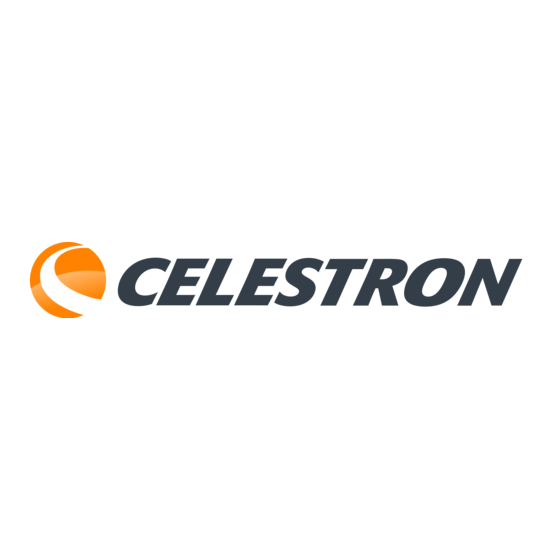Celestron NexImage 93708 Manual del usuario - Página 10
Navegue en línea o descargue pdf Manual del usuario para Cámara digital Celestron NexImage 93708. Celestron NexImage 93708 12 páginas.

Focusing Tips
To achieve best focus, concentrate on a high contrast feature of the object you are imaging.
Focusing on small features such as a moon's shadow on Jupiter or Cassini's division in the
rings of Saturn will guarantee best focus across the entire image.
Once the frames of your video are stacked, the overall brightness of the composite (stacked)
image is usually brighter than its individual component frames. For this reason, it is best to keep
the brightness of the video image seen on the screen dimmer than you would normally desire. It
is important that no part of the image is overexposed to assure the maximum amount of detail
in the final composite image.
Collimation
No matter what type of telescope you image with, poor collimation (alignment of the optics) will
ruin your chances for a good image. Before you begin imaging, always check the collimation of
your instrument and make adjustments if necessary. Refer to your telescope's owner's manual
for instruction in collimating the optics.
Finding Objects
At first it can be difficult to locate individual planets due to their relative brightness. To make it
easier to initially find your object in the imaging window, increase the brightness and gain controls
on the Exposure toolbar. This will allow you to better see the object as it passes through the
imaging window. Once you have located and centered the object, you can adjust the setting
until the object is at the desired brightness and contrast.
How long to take Streaming Video
At first you may think that the more frames you record, the better. However, there are some
limitation to the duration of video and the amount of frames you can acquire. Resolution and
file size can both limit the length of time of your video.
10
|
ENGLISH
